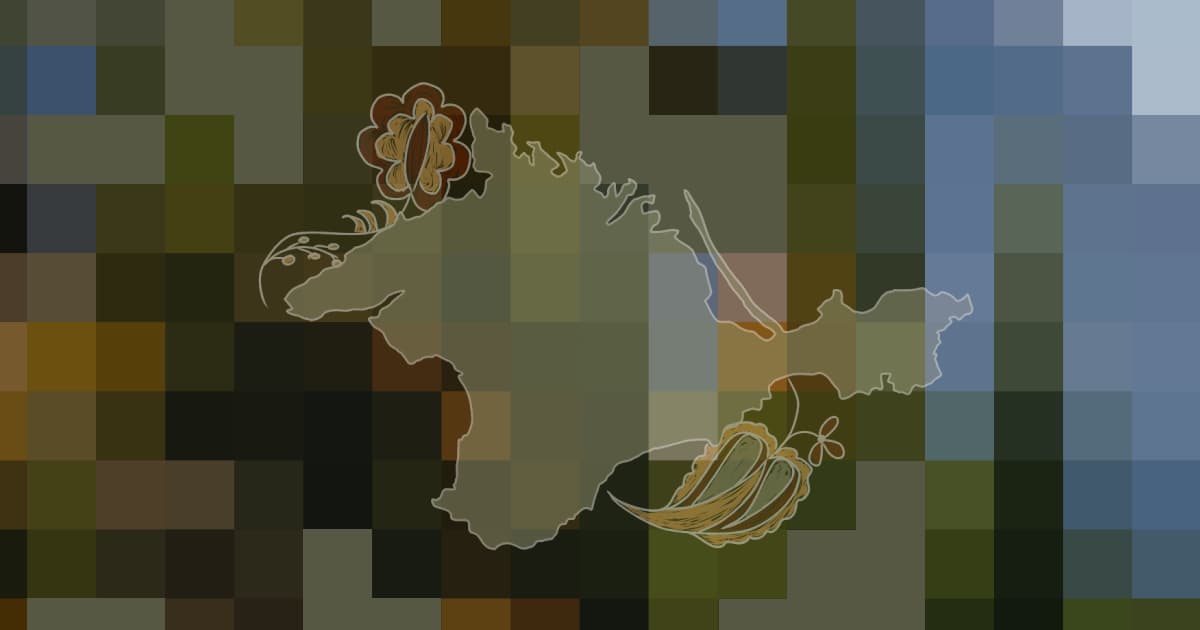"One of the main mistakes of Ukraine is to ignore the rights of the indigenous people of Qırım before 2014" — Mustafa Cemilev
Stanislav Oroshkevych

"Mustafa Cemilev showed his punk nature," says Alim Aliiev, Deputy Director General of the Ukrainian Institute. The 79-year-old Cemilev, after an hour and a half of discussion about the fate of the Qırımtatarlar, jumped off the stage of the Day of Qırım, which was held as part of the Protasiv Yar festival, in the style of James Bond spy films. He showed that he still has a lot of energy and enthusiasm. So does the national resistance movement of the Qırımtatarlar.
The main theme of the discussion was the dialogue between Ukrainian and Qırımtatar cultures with joint readings of translated Ukrainian and Qırımtatar poetry and prose. The audience also heard a story about the resistance movement on the peninsula, which has been going on for 9 years after the occupation, with the participation of human rights activist Olha Skrypnyk, poet Olena Huseinova, and Chairman of the Qırımtatar Milliy Meclisi Refat Çubarov. As the speakers noted, the resistance movement is the key to the Qırım's reintegration after de-occupation. This idea was emphasised by both the older generation of Qırımtatarlar — Mustafa Cemilev and Refat Çubarov — and the younger generation — Alim Aliiev and Akhtem Seitablaiev.
"There are enough different events in my life that I have been organising for the last 15 years. But Protasiv Yar is a special event in memory of Roman Ratushnyi. It takes place where Roman fought for his land in the heart of Kyiv. And this, in my opinion, is an analogy with Qırım, when we are fighting for the heart of Ukraine right now. Therefore, it is about the struggle and the fact that this struggle must always be nourished and never given up," Alim Aliiev said in a comment to Svidomi.
Refat Çubarov delivered a similar message. He noted that it is important for the natives of Qırım to follow the example of the Protasiv Yar community in defending their territory.
"I want Qırım to be viewed in the same way as the people who defend Protasıv Yar. Qırım is also a unique part, a piece of Ukrainian territory, which is both the homeland of the Qırımtatarlar and the territory of Ukraine," Çubarov said.
Qırım is home to the Qırımtatarlar
It's scorching hot, and pilaf is sizzling nearby. The aroma of coffee wafts from a hot cezve (a small long-handled pot for making coffee — ed.) on the sand. The atmosphere encourages you to sit on the lawn of Protasiv Yar, stretch your legs, and listen to the poetry recited by Ukrainians and Qırımtatarlar. However, poetry in the Qırımtatar language brings me back to the primary goal of learning more about the Qırımtatarlar. I get up and start looking around for someone to ask, "What is the national identity of the Qırımtatarlar?"
It is a struggle for the right to identity. One of the main directions of our movement was the restoration of our native language and traditions, which the Soviet authorities destroyed during the deportation [in 1944],
says Mustafa Cemilev.
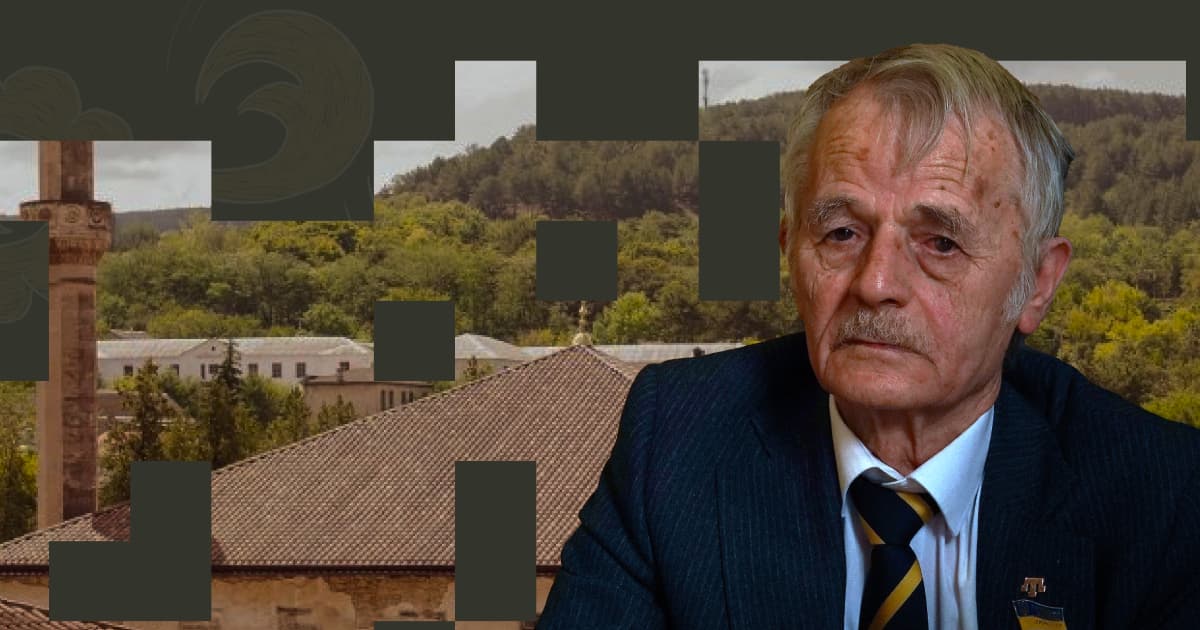
The leader of the Qırımtatarlar national movement recalls: "In 1944, there were no schools teaching in our native language. If anyone knew the language, it was a 'kitchen language' they heard from their parents. But we could not read it or study it. When the generation changed to those born in exile, the situation worsened. According to one study (as part of the development of the Strategy for the Development of the Qırımtatar Language for 2022-2032 — ed.), only about 20% of Qırımtatarlar speak their native language. That is why one of the main areas of our activity was the establishment of national schools.
But again, the state did not pay due attention to this issue, and every time a school was opened, it was a battle. Rallies, demonstrations, protests — that's how we opened schools. By the time of the start of the occupation, only 15 Qırımtatar-language schools had been established."
The national identity of Qırımtatarlar is a struggle for visibility.
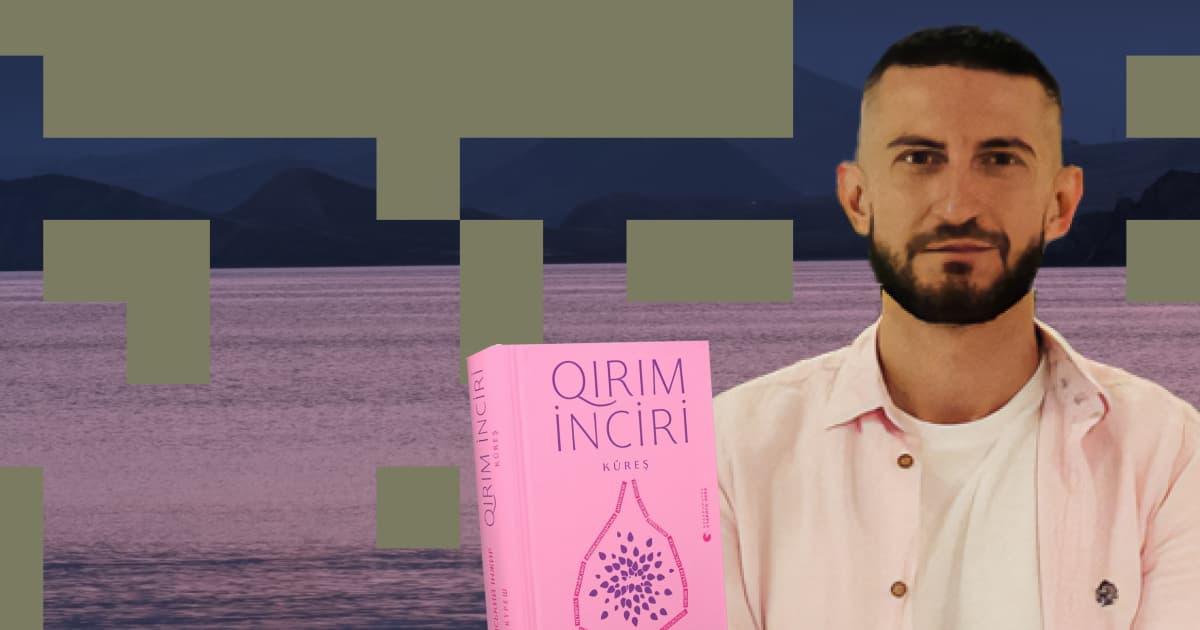
Alim Aliiev, co-founder of the NGOs CrimeaSOS and Qırım Evi, emphasises that the voice of the Qırımtatarlar is being heard: "I am the compiler of Qırım İnciri. It is an anthology of poetry, prose, and translations in Qırımtatar and Ukrainian. This is the fourth anthology. I am glad that this project exists — many authors contact us. Qırım political prisoners also contribute to the anthology: Nariman Celal, Akhtem Asa, Server Mustafaiev, and others. This means that we have a whole class of prison dissident literature. Just like in Soviet times. Now, because of the Russian aggression, this is becoming more common."
Qırımtatarlar also demonstrate their visibility through speaking their native language in public. The occupation authorities prohibit its study in schools in the temporarily occupied Qırım. Therefore, Qırımtatarlar create secret associations and educational communities.
"The Qırımtatar language is a separate language, not a dialect. I know it, my mother is a teacher of the Qırımtatar language. But there are far fewer schools in Qırım, the invaders are closing them. Nevertheless, the Qırımtatarlar gather together, just like in Soviet times. They learn Qırımtatar in language houses, adults teach children. It is important to preserve it. Because according to UNESCO, Qırımtatar is one of the endangered languages," says Aliiev.
The national identity of Qırımtatarlar is a struggle for their home.
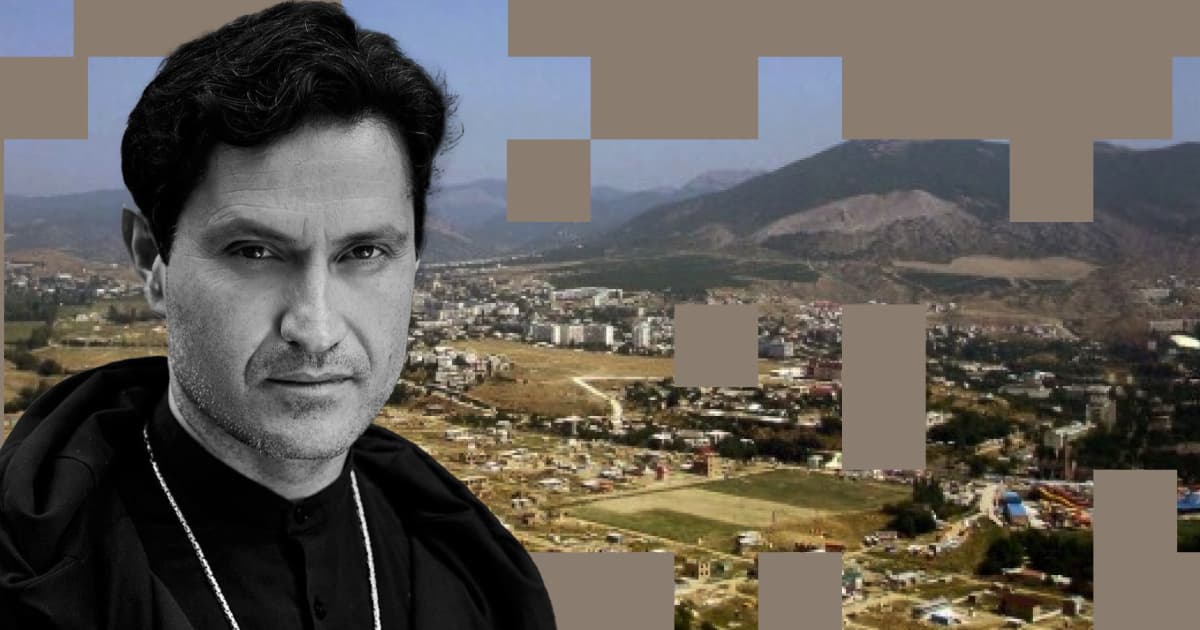
"Is there a reason why the Russian special services conduct searches in houses at four a.m.? They know that the deportation of Qırımtatarlar in 1944 began at four a.m. They emphasise their knowledge of one of the most tragic pages in the life of our people, trying to increase fear of them. But they don't even know their own history well. We always come back home. The Crimean War was never won by the Russian Empire or the Soviet Union.
We can be killed. But we cannot be defeated," says director Akhtem Seitablaiev.
Qırım is home for Ukrainians
I see a woman in a white dress with black hair. She is actively chatting with the participants of the literary readings at the festival. This is Olena, an ethnic Ukrainian woman who was forced to leave Qırım. I ask her how she remembers her home.
"It is immense: the streets of my childhood, the landscapes of my adult life, a long history of different nations, and most importantly, people. It makes me angry when people say that Qırım is just a beach and baklava," she says, gesturing and smiling.
I catch myself thinking: the zoo in Yalta, the burning sand, sweet corn, cartoonish tourists, the hot sun, and beautiful nature — my childhood memories and ideas of Qırım would infuriate her. The context of the people, the indigenous inhabitants of Qırım, and the historical background — I was not interested in that at the time.
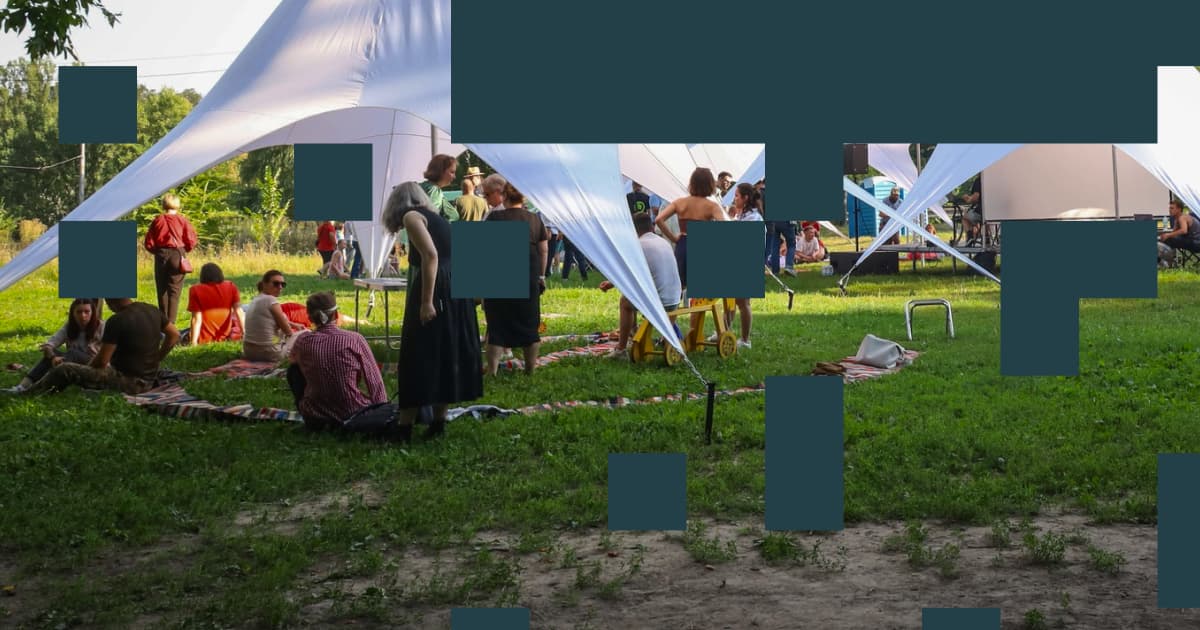
However, now the perception of the peninsula is changing — through journalism, discussion, and literature. Svitlana Taratorina, author of the novel House of Salt, a Ukrainian born in Qırım, notes this. At the same time, she adds that there is another challenge: keeping in touch with the occupied territory.
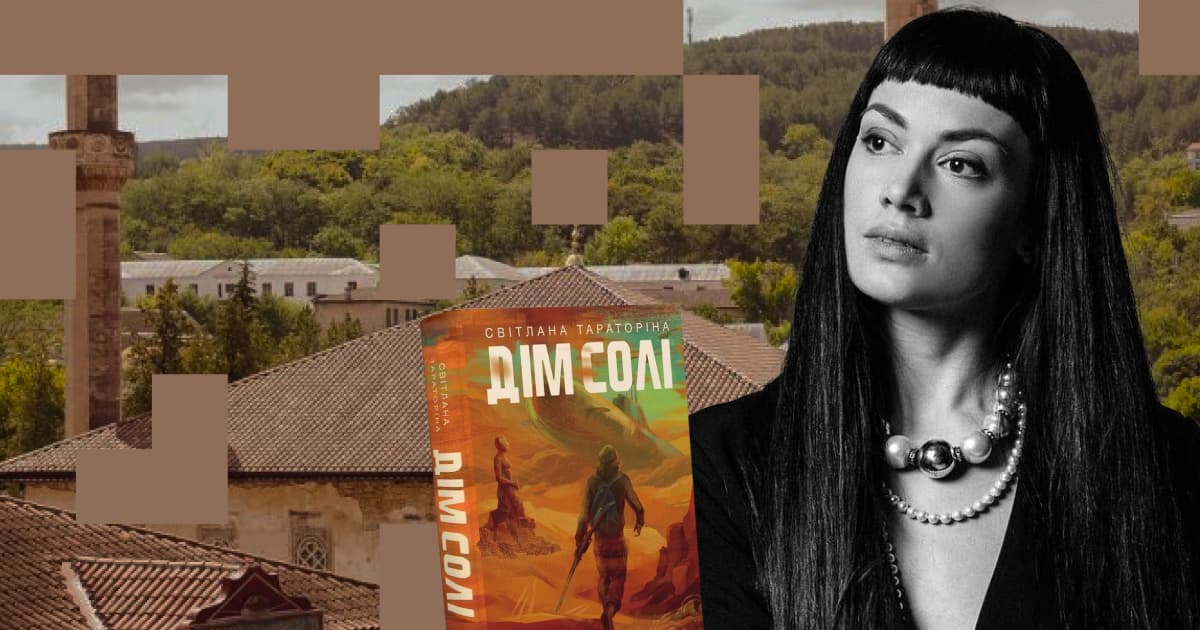
Nine years is a long time. Children who have never been to Qırım and don't know what it is have grown up. It is literature that allows us to create at least some perspective on Qırım, a magical framework through which, when you come to the liberated peninsula, you can somehow prepare for a meeting with Qırım.
"The example of Anastasiia Levkova, a Lviv native who wrote a book about Qırım (There is a Land Beyond Perekop), shows that it is possible to piece together a puzzle about Qırım, to discover it without even setting foot on its territory. And this should be done so that Qırım does not become a stereotypical, incognito territory or a hostile environment," says Taratorina.
Svitlana's novel is a book about a mythological fantasy Ukrainian Qırım. The transfer of the book to the temporarily occupied territory was just as fantasy-like. She says it was like a cultural special operation.
"The level of fear of people living there is high. I know that they are waiting for Ukraine. I hope they also want to understand what has happened in our country over the past nine years — we need to build on our experience.
Again, this is possible through literature. When those who have lived under occupation for nine years read books written about Qırım in Ukraine, they will realise that they have not been forgotten. We are talking about a cultural dialogue that will begin after liberation. But we have to start this journey now," the writer says.
Qırım is a common home
Before the occupation of Qırım, the attitude to the Qırımtatarlar, Qrımqaraylar, and Qrımçahlar in Ukraine was peculiar. For example, the Security Service of Ukraine in Qırım had about 2,300 employees, but there was not a single indigenous person among them, Mustafa Cemilev emphasises. "And after the occupation, 88% of the SBU officers turned out to be traitors," Mustafa continues. However, the situation is changing, as both Cemilev and Aliiev say.
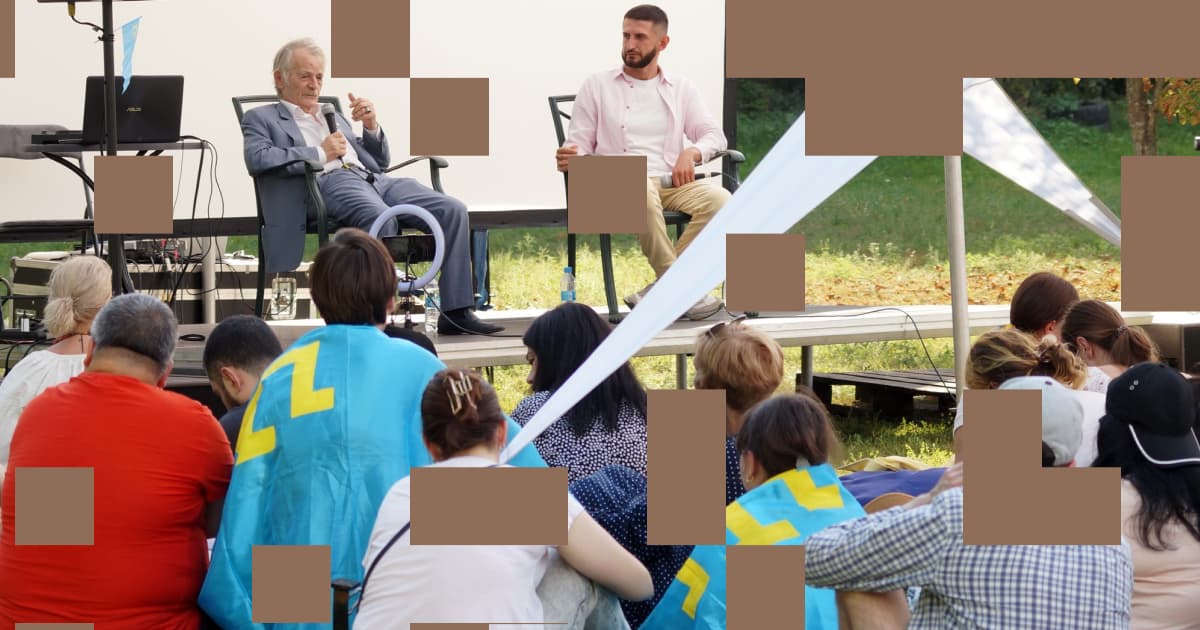
"Qırımtatarlar know and understand Ukrainians better than Ukrainians knew and understood Qırımtatarlar. Now the situation is levelling out. I think that Qırımtatarlar and Ukrainians feel that we are united by the values of freedom and dignity," Alim Aliiev said.
Svitlana Taratorina sees imperial policy as the reason for the lack of understanding between the peoples: "The empire has always separated our peoples, saying that we are historical enemies. But we need to reveal the real truth about the relationship, which was different: both antagonistic and friendly".
For me, the most important conclusion from my research into the history of Qırım is that we have always been partners with the Qırımtatarlar. And it is important to preserve this and use it to win.
Mustafa Cemilev shares Taratorina's opinion: "Look at how Russians teach the history of Qırım. It is turned upside down — it starts with Russia. This is a propaganda method used by the authoritarian regime in the occupied territories."
Cemilev also recalled an incident he was told about from the temporarily occupied Qırım. Russian schools directly state their intention to assimilate the Qırımtatarlar, but they do not put up with it.
"In one of the schools, my mother brought an application to the principal to open an optional class in the Qırımtatar language. An FSB officer was sitting in the office and said: "In 15 years, you will forget what the Qırımtatar language is." They really think they are going to Russify the entire peninsula. They are putting a lot of effort into this. But we do not put up with it. Qırım is Ukraine," Mustafa emphasises.
